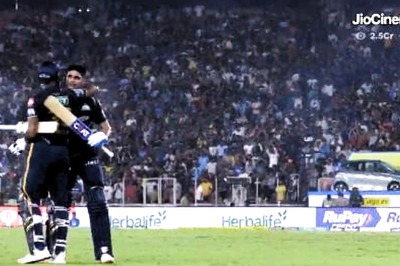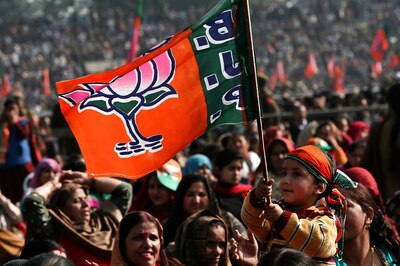
views
Forty eight-year-old Susheela Patil from Dharwad, no longer goes out and look up to the sky to track the cloud movement. Instead, she waits for her mobile phone to beep, checks the message from University of Agricultural Sciences (UAS), Dharwad, for her updates on the day’s forecast.
With the change in climatic conditions, agricultural universities are spearheading movement to sensitise farmers in the state on technology-based farming activities.
UAS is using Information and Communication Technology (ICT) tools to disseminate weather report to around 6,000 farmers across nine districts of North Karnataka.
“We receive the message before noon, and it helps us to plan our day on the field. These messages have helped us in planning our sowing activity in the past three seasons. I sowed groundnut in June, based upon the formation sent by the university,” said Susheela.
The initiative, which was started in 2009, has seen a new set of 1,200 farmers registering for the programme during four-day Krishi Mela held at Dharwad.
“Though we received funds for climate change, we cannot keep spending on research activities for years. We felt the need to reach out to the farmers at the earliest, and hence this programme was started. It costs the university less than 10 paise to send the information on the mobile phone to a single user,” H Venkatesh, principal scientist at the UAS’s Agrometerology Department said.
This ICT-based weather forecast project has received `5 crore under Rashtriya Krishi Vikas Yojana Scheme.
Venkatesh added that the weather updates are location specific and it is processed and sent through web-based bulk SMS messages in both Kannada or English.
The university, based on its own study, claims that 16 per cent of the farmers use this information for sowing activity, 25 per cent for harvesting, and 42 per cent for other activities such as spraying and harvesting.
However, this system too has its ups and downs as one of the farmers whom Express spoke to, said that the information sent was not always right. “On the day they send a message saying it would rain, it never did and vice versa. So, we have stopped relying on the message,” said Veeranna Gowda from Bagalkot.

















Comments
0 comment